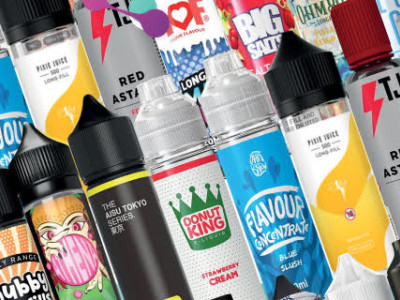The study is published by JMIR Public Health and Surveillance journal, which describes itself as: “A multidisciplinary journal that focuses on public health and technology, public health informatics, mass media campaigns, surveillance, participatory epidemiology, and innovation in public health practice and research”.
Authors Yankun Gao, Zidian Xie, and Dongmei Li work at the Department of Clinical & Translational Research at the University of Rochester Medical Center.
Despite noting that there is a strikingly low number of current smokers and vapers presenting as COVID-19 patients with severe symptoms at hospitals around the world, the trio claim: “Electronic cigarette (e-cigarette) users might be more vulnerable to COVID-19 infection and could develop more severe symptoms.”
That statement isn’t grounded in fact, hence the would-could-should nature of the comment, they rely on statistical manipulation of hard data.
“It is important to characterize how e-cigarette users perceive the COVID-19 pandemic and how their perception differs from that of non-users,” they write. “Understanding the attitudes of e-cigarette users toward the COVID-19 pandemic and topics discussed by them on Twitter could help public health workers and policymakers take appropriate actions such as encouraging e-cigarette users to quit vaping during the current COVID-19 pandemic.”
Laying out their bias with a statement that vapers are more likely to be admitted to hospital than non-vapers indicates that they are less concerned with informing public health and more interested in piggybacking on COVID-19 and conversations about Twitter censorship to promote themselves in an exercise in publicity and fund seeking.
Tweets were collected using the keywords: “e-cig,” “e-cigs,” “Ecig,” “Ecigs,” “electroniccigarette,” “Ecigarette,” “Ecigarettes,” “vape,” “vapers,” “vaping,” “vapes,” “e-liquid,” “ejuice,” “eliquid,” “e-juice,” “vapercon,” “vapeon,” “vapefam,” “vapenation,” and “juul”.
They were then filtered using keywords: “CORONA,” “corona,” “COVID19,” “covid19,” “covid,” “coronavirus,” “Coronavirus,” “CoronaVirus,” and “NCOV”.
The resulting collection was then cleaned of all vendor and promotional related posting: “From the COVID-19 tweets collected, we identified 11,479,773 tweets from 2,511,659 unique Twitter users in the non-Ecig group and 4,500,248 tweets from 187,399 unique Twitter users in the Ecig group.”
They concluded: “The differences between Ecig and non-Ecig group users’ attitudes toward the COVID-19 pandemic indicated a good opportunity to educate e-cigarette users about the potential harms of vaping and encourage them to quit vaping during the COVID-19 pandemic.”
Then the authors engage in pure speculation: “One of the top topics unique to the discussion in the Ecig [user] group was death and virus spread. The concerns in the Ecig group about the virus spread and COVID-19–related deaths might be related to the discussions that vaping may increase the risk of severe COVID-19 infection.”
Finally, no decent hatchet job can pass by without a spurious reference to the EVALI lung injury outbreak – despite it not being associated with vaping – even though they admit near the end of their work that, “currently, there is a lack of evidence that e-cigarette users are more susceptible to COVID-19 infection and death”.
Still, they can hope the missing evidence comes to light so they can justify this waste of time and resources.
Related:
- “Electronic Cigarette Users' Perspective on the COVID-19 Pandemic: Observational Study Using Twitter Data”, 2021, Dongmei Li et al. – [link]
- “E-Cigarette Advocates on Twitter: Content Analysis of Vaping-Related Tweets”, 2020, McCausland et al. – [link]
Photo Credit:
Twitter bird image by Clker-Free-Vector-Images from Pixabay
Mask image by Hank Williams from Pixabay
Dave Cross
Journalist at POTVDave is a freelance writer; with articles on music, motorbikes, football, pop-science, vaping and tobacco harm reduction in Sounds, Melody Maker, UBG, AWoL, Bike, When Saturday Comes, Vape News Magazine, and syndicated across the Johnston Press group. He was published in an anthology of “Greatest Football Writing”, but still believes this was a mistake. Dave contributes sketches to comedy shows and used to co-host a radio sketch show. He’s worked with numerous vape companies to develop content for their websites.
Join the discussion
Harm Reduction For The Rich
The United Kingdom risks becoming a harm reduction country only for the wealthy, according to Michael Landl of the World Vapers’ Alliance
Longfills as an Alternative to Disposables
The disposable vape ban will impact many people, but there’s no reason to be concerned… Grab yourself a pod kit and a Longfill and you’ll be back to vaping the way you want to, just in a cheaper, more environmentally friendly and legal way.
COP10 is a Threat to Safer Nicotine Products
The EU obscures its position on low-risk alternatives to smoking before the WHO COP10 conference in Panama, starting Monday
Nicotine Is Not A Culprit
Planet of the Vapes has always encouraged smokers to use the quit product that works best for them, and snus is a product that seems to be unfairly blocked because it contains nicotine












